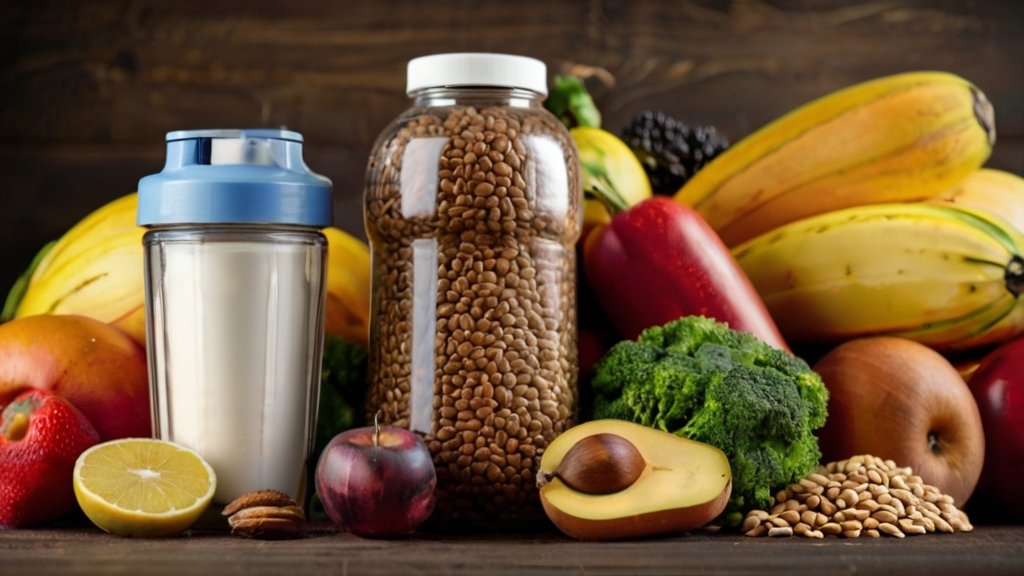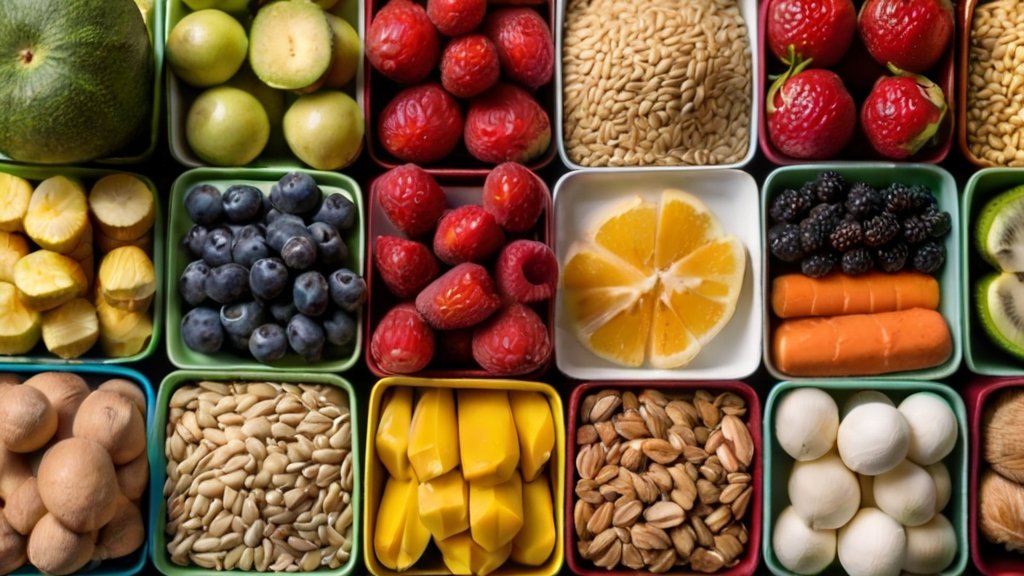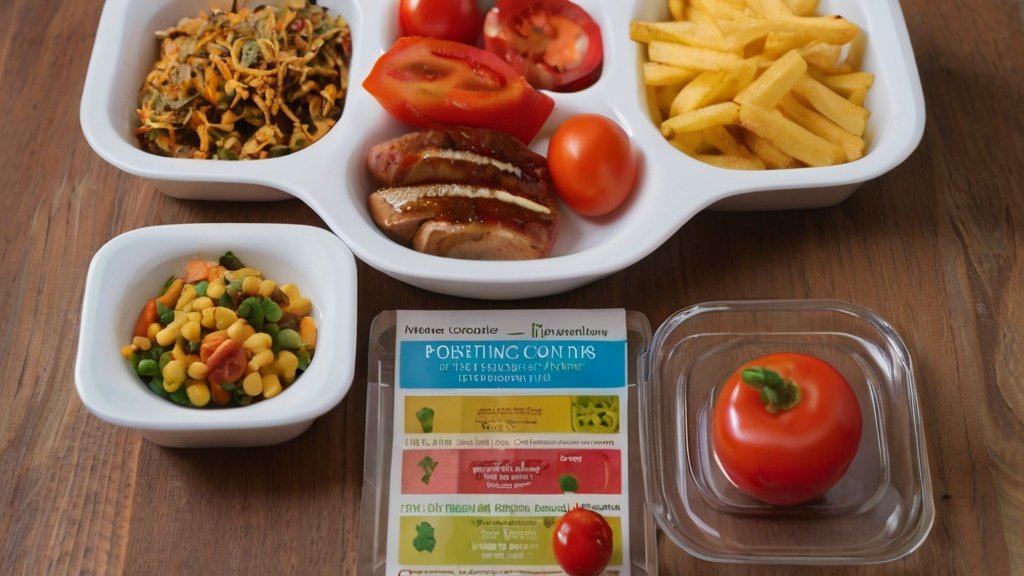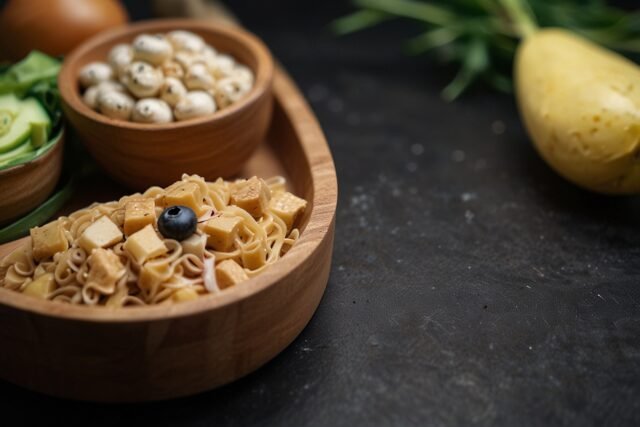Enjoy a variety of foods in moderation, focusing on portion sizes that meet your body’s needs while maintaining a balanced diet.” “Sustaining Healthy Eating from Breakfast to Dinner: Strategies for Nutritious Choices All Day Long” “From Breakfast to dinner: How to sustain Healthy Eating Throughout the Day”
Start with a Balanced Breakfast:
Begin your day with a breakfast that includes a mix of protein, whole grains, and healthy fats to provide sustained energy and keep you feeling full until your next meal.
Include Protein:
Consolidate protein-rich food varieties, for example, eggs, Greek yogurt, curds, or tofu into your morning meal. Protein helps keep you feeling full and fulfilled over the course of the morning.
Add Whole Grains:
Choose whole grain options such as oatmeal, whole grain bread, or quinoa to provide complex carbohydrates for sustained energy. Whole grains also offer fiber, vitamins, and minerals.
Include Healthy Fats:
Incorporate sources of healthy fats like nuts, seeds, avocado, or nut butter into your breakfast. Healthy fats are important for brain health and can help keep you feeling full.
Don’t Forget Fruits and Vegetables:
Add natural products or vegetables to your morning meal for added nutrients, minerals, and fiber. Have a go at adding berries to your oats, spinach to your omelet, or avocado to your toast.
Hydration:
Start your day with a glass of water to rehydrate after sleeping. You can also enjoy herbal tea or a smoothie with added water or milk for hydration.


Smart Snacking:
Smart snacking involves choosing nutritious options that provide sustained energy and satisfy hunger between meals. Opt for snacks high in protein, fiber, and healthy fats to keep you feeling full longer. Avoid processed snacks high in sugar and unhealthy fats. Portion control is also key to prevent overeating. Additionally, consider incorporating fruits, vegetables, nuts, yogurt, and whole grains into your snack choices for a balanced diet. “From Breakfast to dinner: How to sustain Healthy Eating Throughout the Day”
Choose nutrient-dense snacks such as fruits, vegetables with hummus, yogurt, nuts, or whole grain crackers with cheese to curb hunger between meals and maintain steady energy levels.


Lunchtime Choices:
Option for a lunch that includes lean protein, plenty of vegetables, and complex carbohydrates to fuel your afternoon activities and prevent the midday energy slump. “From Breakfast to dinner: How to sustain Healthy Eating Throughout the Day”
Absolutely! Your lunchtime choices can have a significant impact on your overall health, energy levels, and productivity for the rest of the day. Opting for nutritious, balanced meals can provide essential nutrients, sustain energy levels, and promote overall well-being. Conversely, consistently choosing unhealthy or overly processed foods may lead to sluggishness, fatigue, and potential health issues in the long run. Making mindful choices and incorporating a variety of fruits, vegetables, lean proteins, and whole grains into your lunch can help you feel more energized and focused throughout the day.

Hydration:
Remain hydrated over the course of the day by drinking water consistently. Think about natural teas or implanted water for added flavor without added sugars or calories.
Hydration is crucial for overall health and well-being. Not drinking enough water can lead to dehydration, which can cause fatigue, headaches, dizziness, and difficulty concentrating. It’s important to stay hydrated throughout the day, especially during meals and physical activity. Aim to drink at least 8 glasses of water a day, but your individual needs may vary based on factors like climate, activity level, and overall health. Additionally, hydrating foods like fruits and vegetables can contribute to your daily water intake. Paying attention to your body’s thirst cues and making a conscious effort to drink water regularly can help you stay properly hydrated.


Mindful Eating:
Practice cautious eating by zeroing in on longing for and finishing prompts, eating step by step, and valuing each snack. This can help with hindering reveling and advance better handling. Sure, mindful eating is a practice that involves paying full attention to the experience of eating and drinking, both inside and outside the body. It involves being present in the moment, focusing on sensations like taste, texture, and smell, and paying attention to hunger and fullness cues. Mindful eating can help with better digestion, healthier food choices, and overall well-being. “From Breakfast to dinner: How to sustain Healthy Eating Throughout the Day”

Healthy Dinner Options:
Plan dinners that feature lean proteins, whole grains, and plenty of vegetables. Experiment with different cooking methods and flavor combinations to keep meals interesting and satisfying. “From Breakfast to dinner: How to sustain Healthy Eating Throughout the Day”
- Grilled chicken breast with roasted vegetables.
- Quinoa salad with mixed greens, cherry tomatoes, cucumbers, and avocado.
- Baked salmon with steamed broccoli and brown rice.
- Stir-fried tofu with bell peppers, snap peas, and carrots served over whole wheat noodles.
- Lentil soup with a side of whole grain bread.
- Zucchini noodles (zoodles) with marinara sauce and lean turkey meatballs.
- Grilled shrimp skewers with a side of grilled asparagus and sweet potatoes.
- Veggie stir-fry with tofu, broccoli, bell peppers, and snow peas served over cauliflower rice.
- Turkey and black bean lettuce wraps with a side of quinoa.
- Baked cod with a spinach and tomato salad dressed with lemon vinaigrette.


Portion Control:
Be mindful of portion sizes at each meal to avoid overeating. Use smaller plates, bowls, and utensils to help control portion sizes and prevent mindless eating. “From Breakfast to dinner: How to sustain Healthy Eating Throughout the Day”
Portion control is essential for maintaining a balanced diet and managing weight. It involves being mindful of serving sizes and not overeating. You can use measuring tools, like cups or scales, to help control portions, and focus on filling your plate with a variety of nutrient-rich foods. Additionally, listening to your body’s hunger and fullness cues can also aid in portion control.

Late Night Snacks:
If you find yourself hungry in the evening, choose light, nutrient-rich snacks such as a small piece of fruit, a handful of nuts, or a serving of Greek yogurt to satisfy cravings without derailing your healthy eating efforts.
Late-night snacks can be a tricky area for many people, as eating too much or consuming heavy foods before bed can disrupt sleep and lead to weight gain. Option for lighter, nutrient-dense snacks like Greek yogurt with berries, a small handful of nuts, or a piece of fruit with nut butter. Avoid large meals, caffeine, and sugary treats, as they can interfere with your sleep quality. It’s also helpful to eat at least an hour before bedtime to give your body time to digest properly.


In conclusion, maintaining balance and mindfulness from breakfast to dinner is key to a healthy lifestyle. Starting the day with a nutritious breakfast sets the tone for better food choices throughout the day. Incorporating a variety of nutrient-dense foods, controlling portion sizes, and being mindful of late-night snacks can help support overall health and wellness. Remembering to listen to your body’s hunger and fullness cues and making conscious choices about what and when to eat can contribute to long-term well-being.






